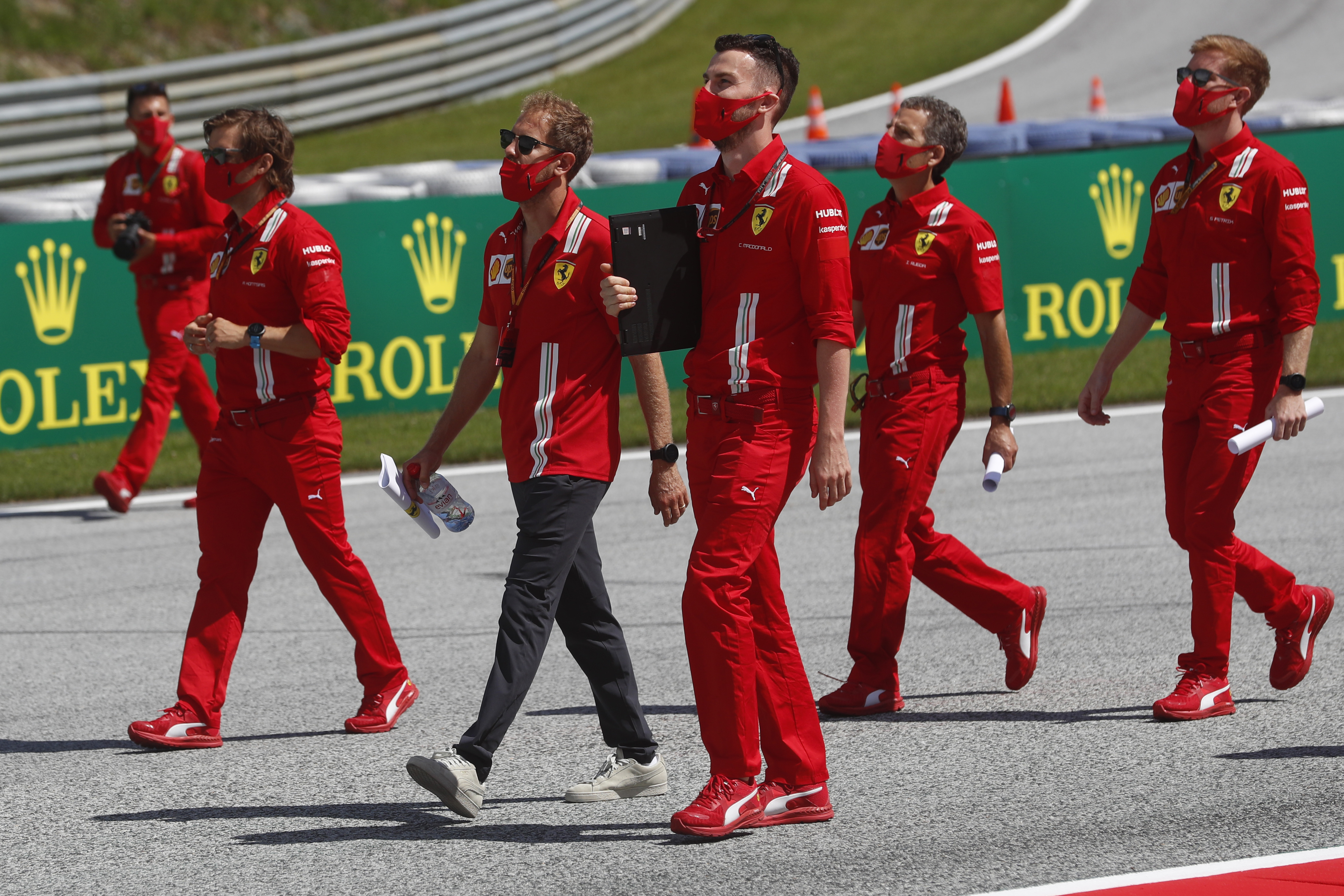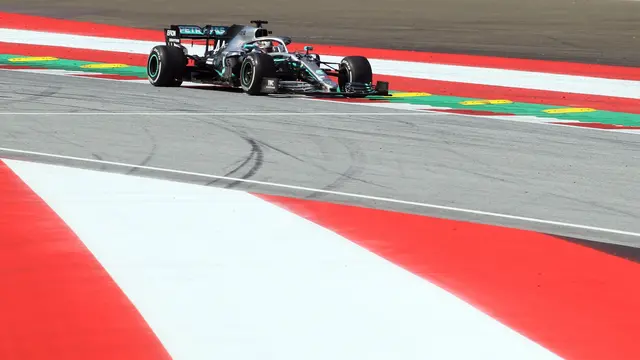
Mercedes driver Lewis Hamilton steers his car during a free practice session for the Austrian Formula One Grand Prix at the Red Bull Ring racetrack in Spielberg, Austria, June 28, 2019. /AP
Four months late, with no fans in the stands but possibly a few cows looking on: Formula 1 will get an unusual start to its 2020-2021 season when drivers and cars line up at Austria's Red Bull Ring for two races on July 5 and 12.
The Austrian government gave the go-ahead for the races last month, but under strict health and safety conditions that will require the teams to undergo regular testing.
This will be the first time the small alpine country hosts a double-header as F1 tries to make up for lost races in what is likely to be a disjointed and truncated season.
COVID-19 disruption
Formula 1 was one of the first major sports to be hit by COVID-19, with organizers of the Shanghai Grand Prix announcing in mid-February that they were postponing their event, set for April, amid the growing epidemic in China.
Teams still traveled to Melbourne for the season-opening Australian Grand Prix in March, but it was called off at the last minute over health and safety concerns, after several team members had to be quarantined and teams complained about the risks.
F1 races in the Netherlands, Monaco, Azerbaijan and France were then scrapped, while those in Bahrain, Vietnam and Canada were postponed. The Singapore and Japanese Grand Prix, scheduled for later in the year, were also called off.

Ferrari driver Sebastian Vettel, center left, and his team wear face masks as they inspect the track at the Red Bull Ring in Spielberg, Austria, July 2, 2020. /AP
As a result, F1's 2020-2021 season will debut at the Red Bull Ring in the southern Austrian countryside.
The two races, held on back-to-back weekends, kick off an F1 calendar that has just eight dates at the moment compared to the original 22, with the rest of the season still up in the air.
Careful restart
Strict rules have been put in place
to avoid any contagion as teams travel in from different countries.
The races will be held without spectators and teams have been drastically reduced. Drivers and team personnel had to provide a negative test for COVID-19 prior to traveling and they will also have to undergo regular testing upon arrival. Social distancing will be required as far as possible, with only essential staff allowed on the circuit. Drivers and teams have also been advised to operate in "bubbles," to limit contact with others.
Part of
Austria's appeal as the starting point
of the season had to do with the race track's relatively isolated location.
Austria has generally brought the epidemic under control after registering a peak in cases in late March. After two months of lockdown, much of the country has reopened, although safety precautions and social distancing in public places are still encouraged. Other sports have also picked up again, with the Austrian football league resuming matches earlier this month, without spectators.

Mercedes driver Lewis Hamilton (center) celebrates with Red Bull driver Max Verstappen (left) and Ferrari driver Charles Leclerc (right) after winning the Emirates Formula One Grand Prix in Abu Dhabi, United Arab Emirates, December 1, 2019. /AP
The recent Adria Tour tennis tournament in the Balkans, which resulted in several of the world's top tennis players testing positive, was a reminder of the risks of organizing an international competition with athletes and staff participating from a dozen different countries.
New champions in the wings?
Mercedes and six-time champion Lewis Hamilton will be looking to extend their winning streak this year, even with half the F1 calendar already wiped out.
Young guns Max Verstappen of Red Bull and Charles Leclerc of Ferrari showed last season however that they are a force to be reckoned with, taking five wins between the two of them and finishing hot on the heels — and wheels — of Hamilton and teammate Valtteri Bottas.
The fact that the season will start at the Red Bull Ring, where Verstappen topped the podium the last two years, also bodes well for the young Dutchman.
Few changes have been made to the stables, with Toro Rosso redubbed AlphaTauri and Esteban Ocon joining Daniel Ricciardo at Renault, while Williams has brought in Canadian rookie Nicholas Latifi to team up with George Russell.
Mercedes has meanwhile announced it will race in an all-black livery this season instead of their usual silver, as part of
a pledge to tackle racism
and discrimination.
After Austria, the F1 circuit will head to neighboring Hungary, the UK for another double-header at Silverstone, then Spain, Belgium and Italy. The rest of the calendar has yet to be announced, with F1's bosses hoping to line up
15 to 18 races in total
before December.
In the meantime, Austria will be a test for F1 – for the drivers and teams, but also for the new safety regulations – as the sport seeks to pick up after COVID-19.
 简体中文
简体中文












